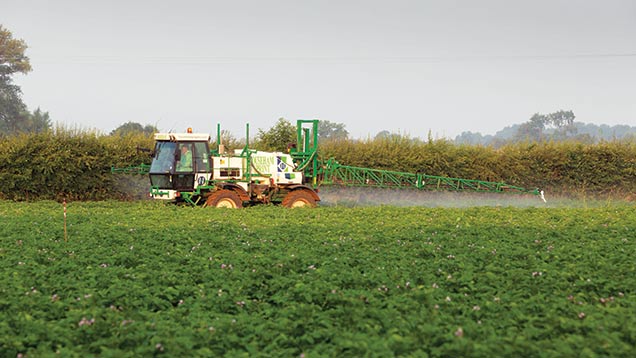Pesticide use soars on stored seed potato crops in Scotland
 ©Tim Scrivener
©Tim Scrivener Three reports detailing pesticide use in Scotland last year have been published by the chief statistician.
These are: Arable Crops and Potato Stores 2014 (pdf), Soft Fruit Crops 2014 (pdf) and Rodenticides on Arable Farms (pdf) 2014.
For stored potato crops, 47% of seed potatoes were treated with a pesticide in 2014 – an increase from the 20% treated in 2012.
See also: How agchem firms are breathing new life into old pesticide actives
Conversely, 11% of ware potatoes going into store were treated with a pesticide, a decrease from the 35% treated in 2012. Fungicides and plant growth regulators were the only pesticides encountered.
“The reasons for changes in pesticide use pattern on stored potatoes are complex,” said the report authors. “But may have been influenced by disease levels, demand for high-quality seed exports and consumer and industry pressure to reduce pesticide use in ware potatoes.”
Overall, the total area of pesticide formulations applied to arable crops, and the total weight used in 2014, was very similar to that reported in the previous survey in 2012.
The statistics showed that last year 98% of arable crops were treated with pesticides, with a total combined weight of 1,510t.
Herbicides and fungicides were the main pesticide types used, applied to 95% and 94% of the crop area, respectively.
Overall, 94% of the soft fruit crop was treated with pesticides with a combined application weight of 24.5t.
It was estimated that rodenticides were used on 87% Scottish arable farms in 2014.
Farmers used an estimated 113t of rodenticide bait, containing less than 6kg of active substance – 13% lower than in the previous survey in 2012.
The rodenticides used were almost exclusively second generation anticoagulant compounds, primarily bromadiolone and difenacoum.
Use of first generation anticoagulant rodenticides has been declining over time and this is the first survey in which their use has not been encountered.
The figures were produced by independent statistical staff from the Scottish government, free from any political interference and in accordance with professional standards set out in the Code of Practice for Official Statistics.

